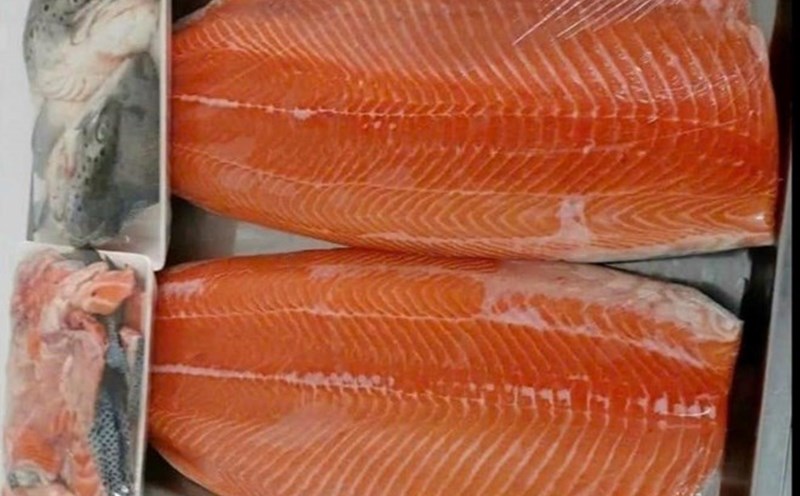Vitamin D, essential nutrients from the ocean
Vitamin D is a fat-soluble vitamin that plays an important role in calcium absorption, maintaining bone and joint health and reducing inflammation. Many studies show that fatty fish is a rich source of natural vitamin D, especially salmon, mackerel, herring or sardines.
According to nutritionist Jonathan Purtell, RDN, member of the verywell Health Medical Experts Council (USA): Including fish rich in vitamin D into your daily meals is as simple as replacing familiar sources of protein. This is not only good for bones but also supports immunity effectively".
Here are 6 types of fish rich in vitamin D that you can add to your menu:
Salmon: Every 100g of salmon provides about 14.2 mcg of vitamin D. naturally caught salmon contains a higher content than raised fish. In addition, salmon is rich in B vitamins, which help restore DNA and improve nerve health.
Mackerel: 100g of mackerel contains about 16.1 mcg of vitamin D and a rich amount of omega-3. This fish is said to help reduce cardiovascular risk and support the brain, limiting the risk of Alzheimer's.
Herring: With 4.5 mcg of vitamin D per serving, herring also provides a lot of calcium, potassium and healthy fats. However, if you eat salted fish, you need to pay attention to its high sodium content.
Rainbow trout: belonging to the salmon family, salmon contains 16.2 mcg of vitamin D per 100g, equivalent to 81% of daily needs. This is a soft, easy-to-process car body fish.
Sardines: This small fish contains about 1.2 mcg of vitamin D in just 2 fish. Sardines are often canned and are great for adding to salads, pasta or pizza.
Tuna: Although rich in vitamin D (1 mcg per 100g) and protein, tuna can contain mercury. Experts recommend choosing "light" canned tuna to limit the risk. Pregnant or breastfeeding women should prioritize fish with less mercury.
Note:
In addition to food, vitamin D can also be supplemented through sunlight or cod liver oil - an oil that contains up to 34 mcg of vitamin D per serving.
Vitamin D is key to calcium absorption and bone growth, says Dr Michael Holick, an endocrinologist at Boston University (USA). A diet rich in fatty fish and reasonable sunathing can prevent vitamin D deficiency in many people".
Adding fish rich in vitamin D to your daily meals is not too difficult. You can try fish with fish sauce in fish sauce in teriyaki, sardines mixed with salad or pan-fried mackerel with whole grains.








